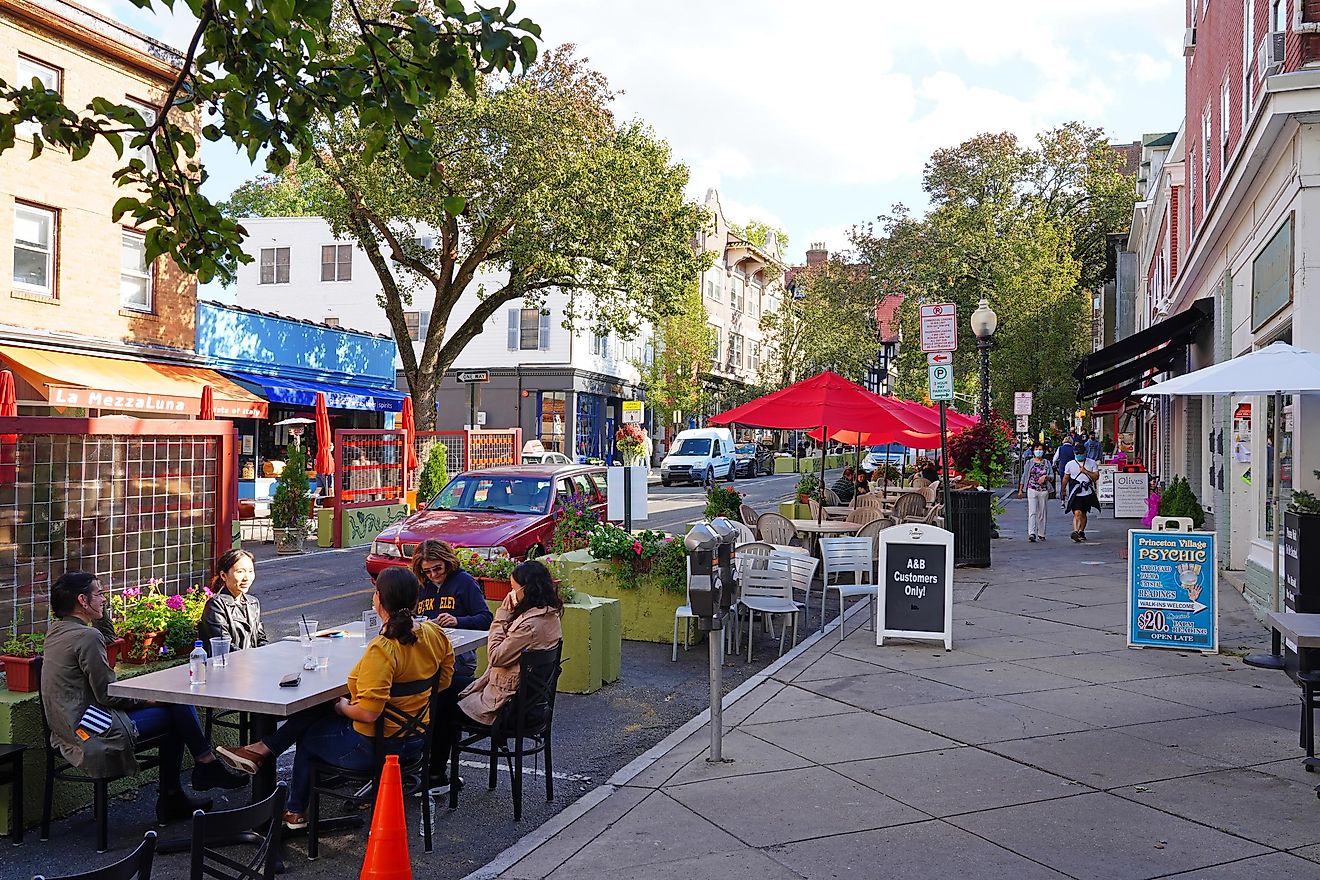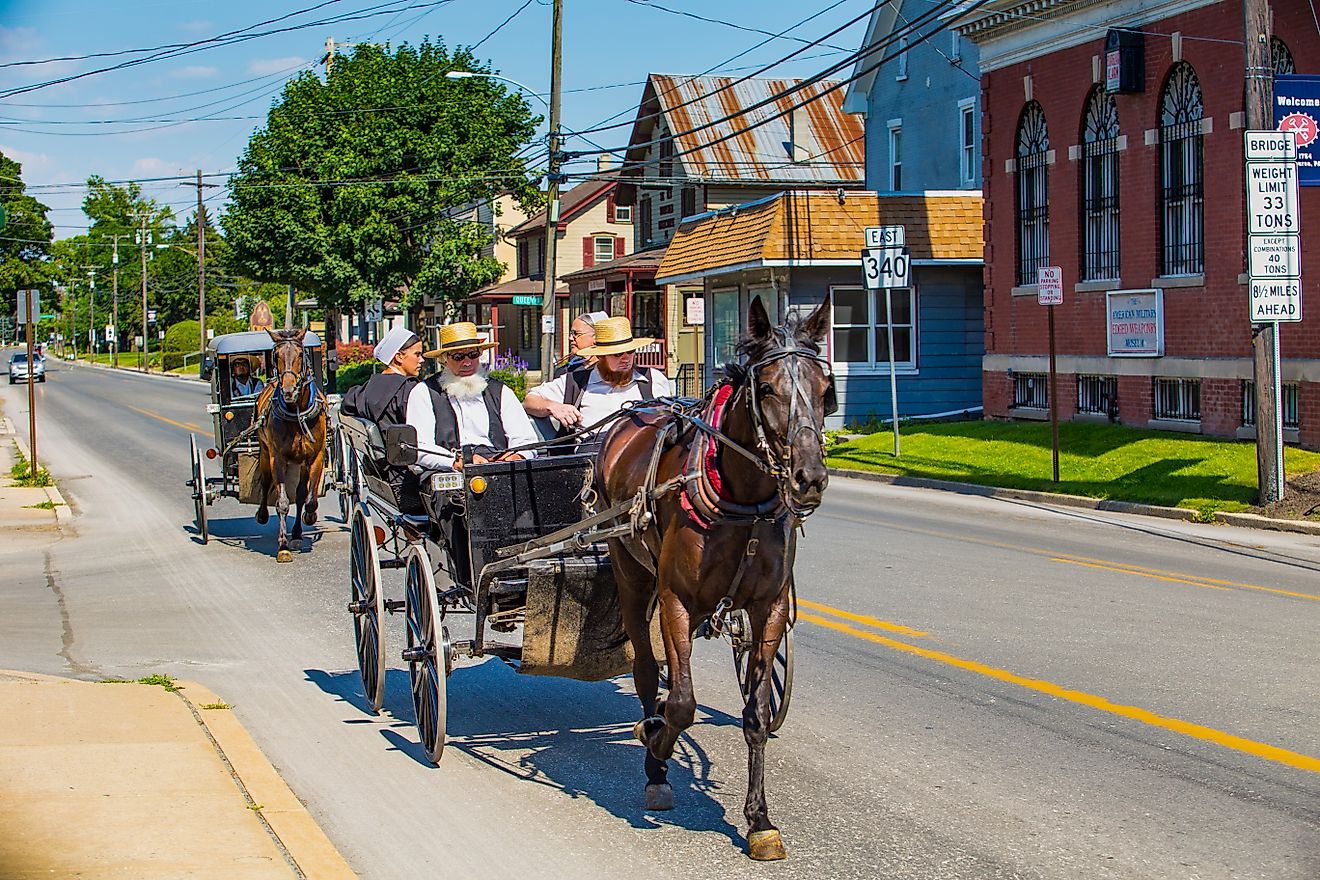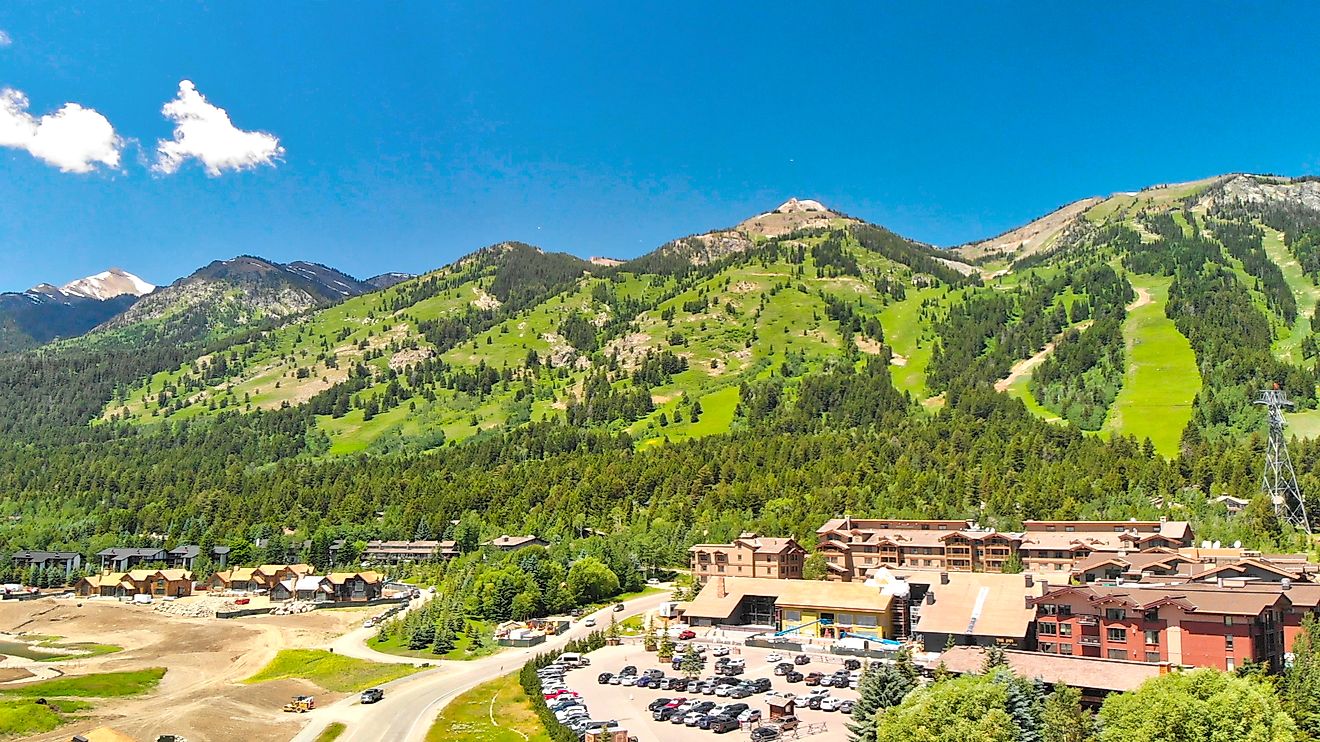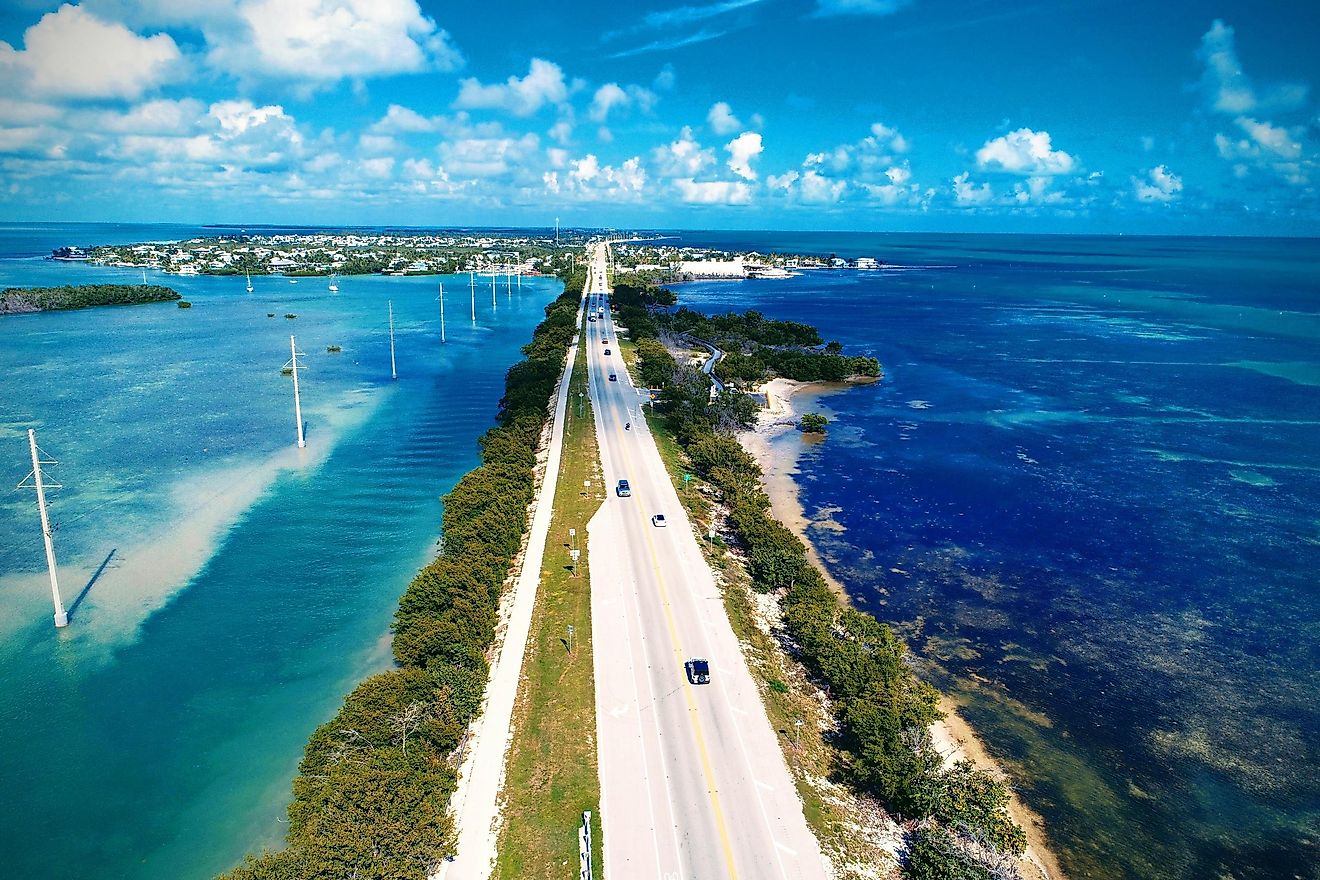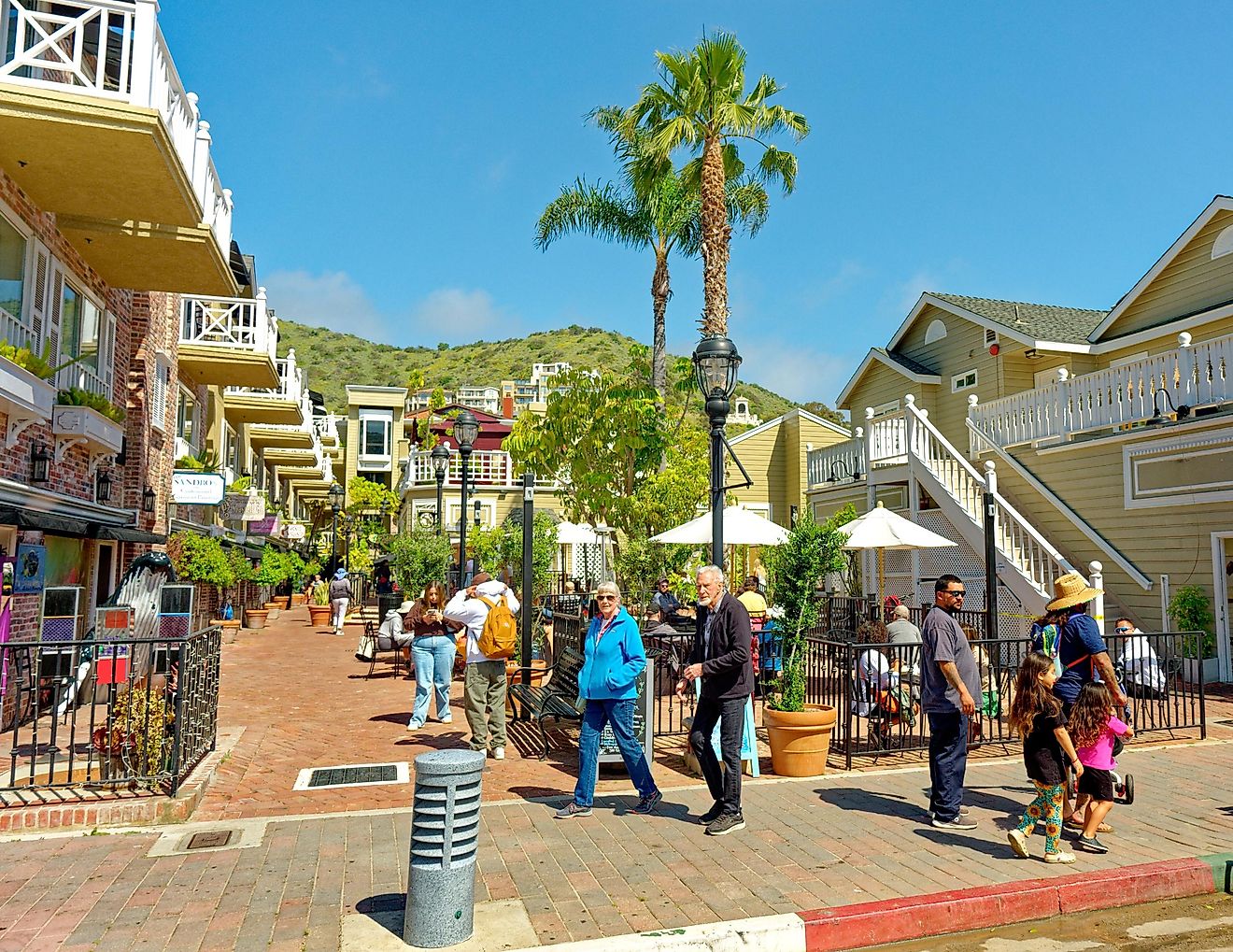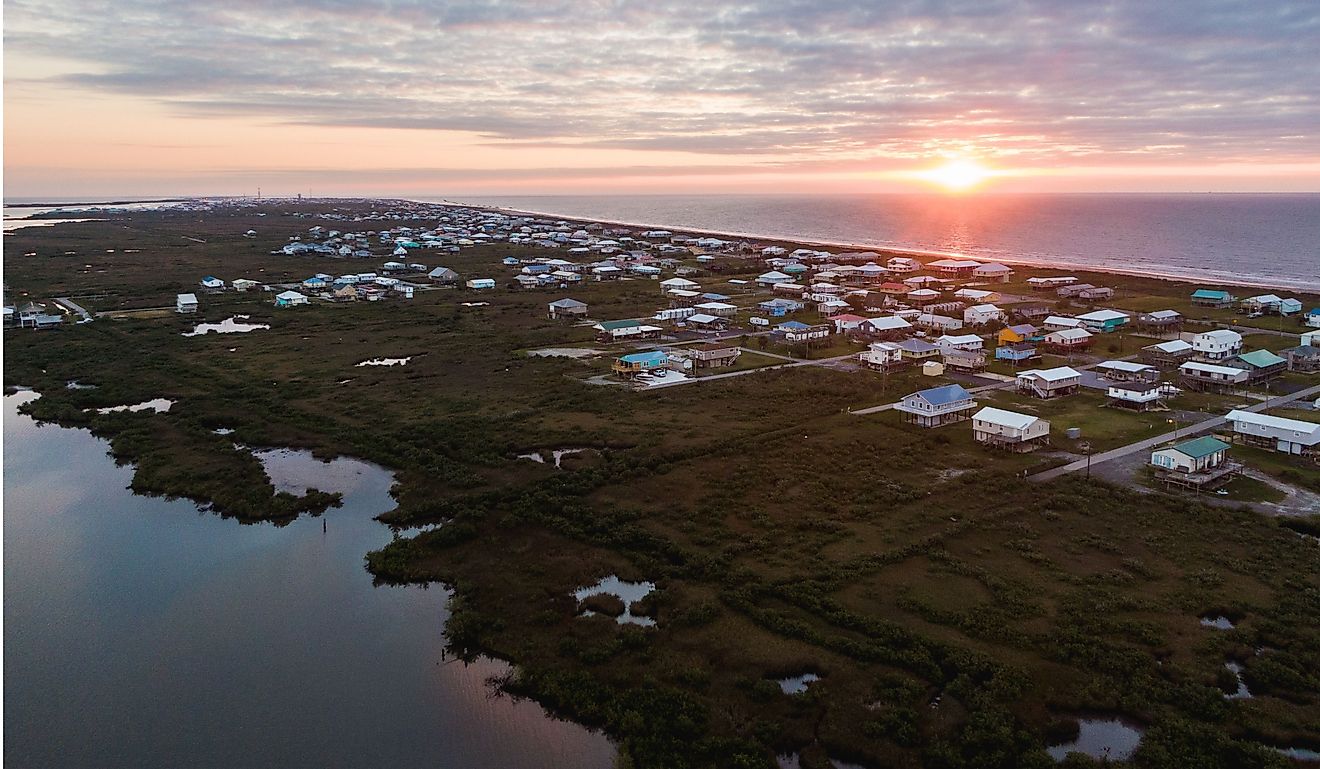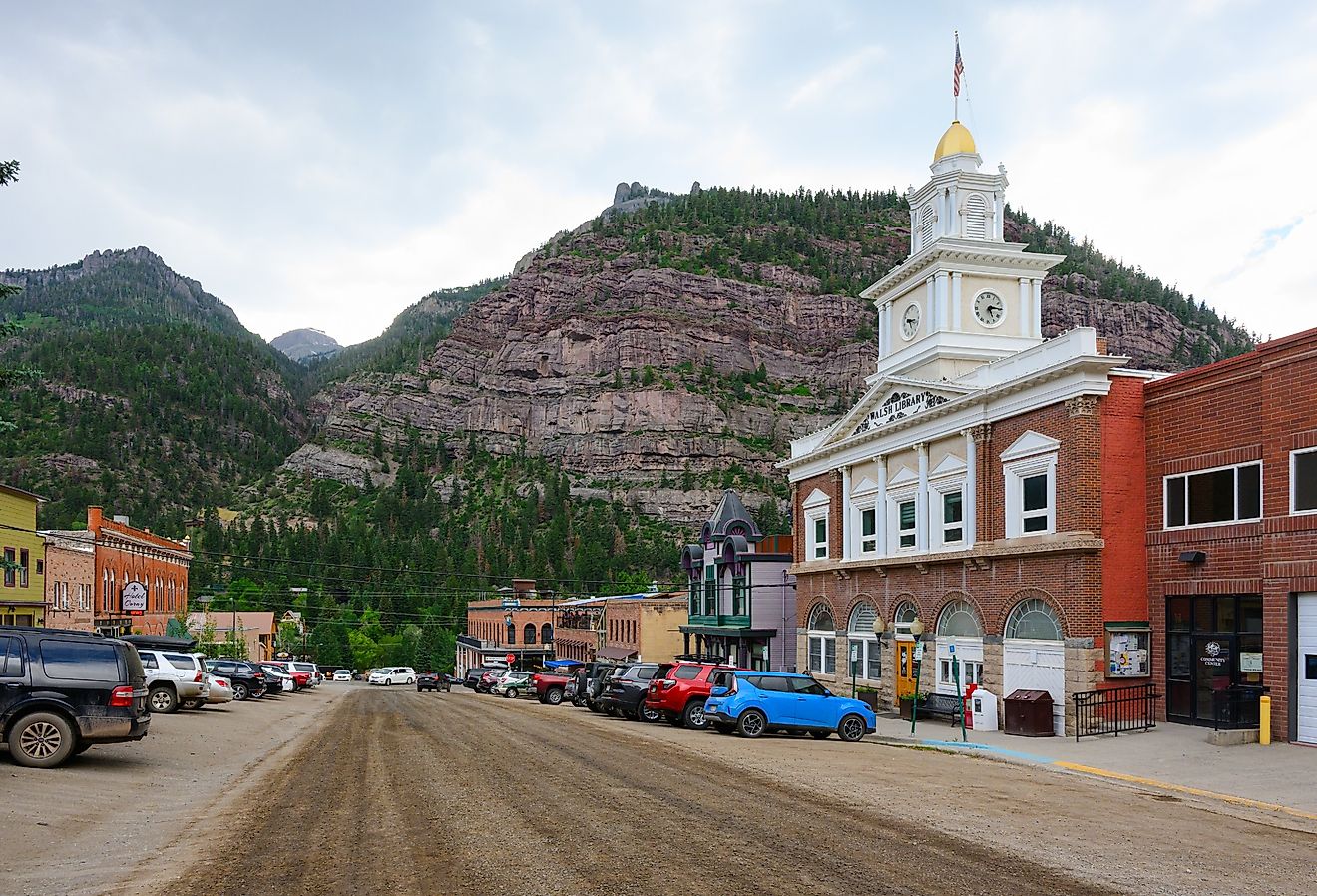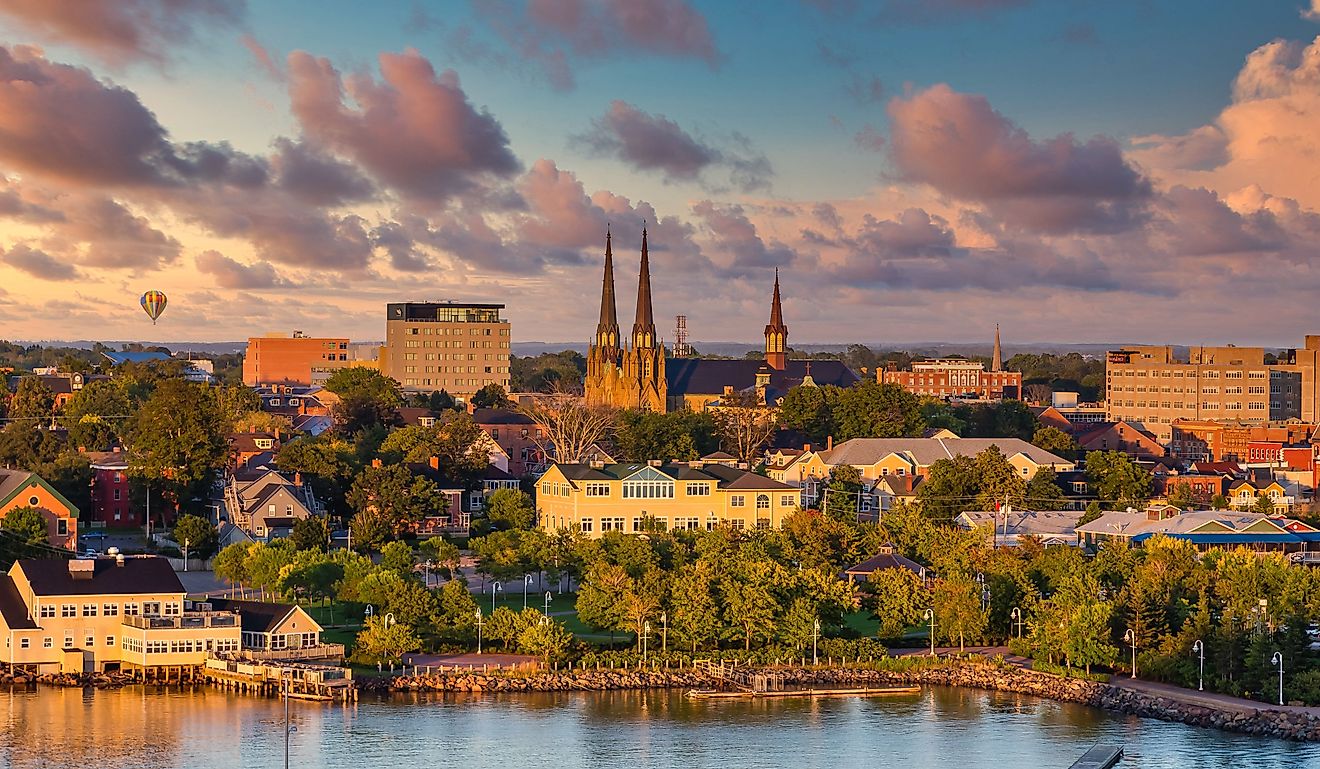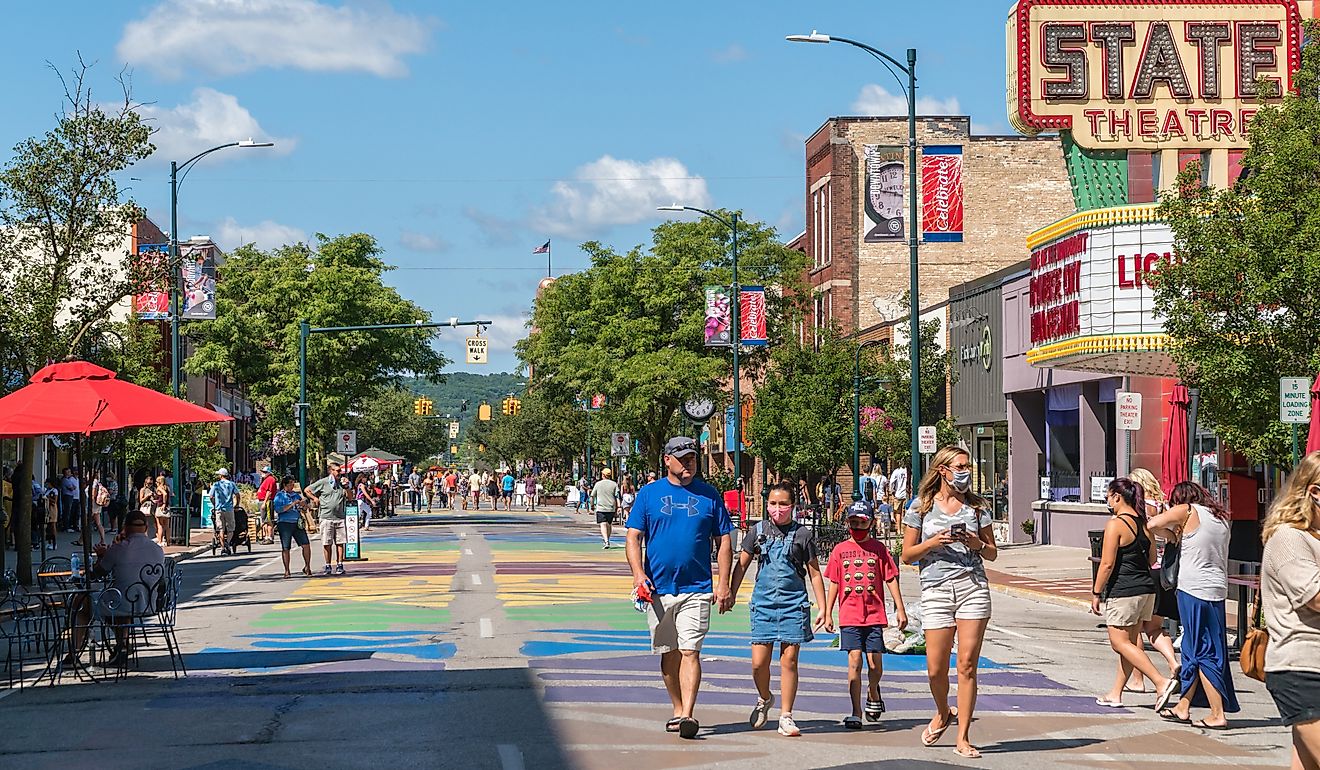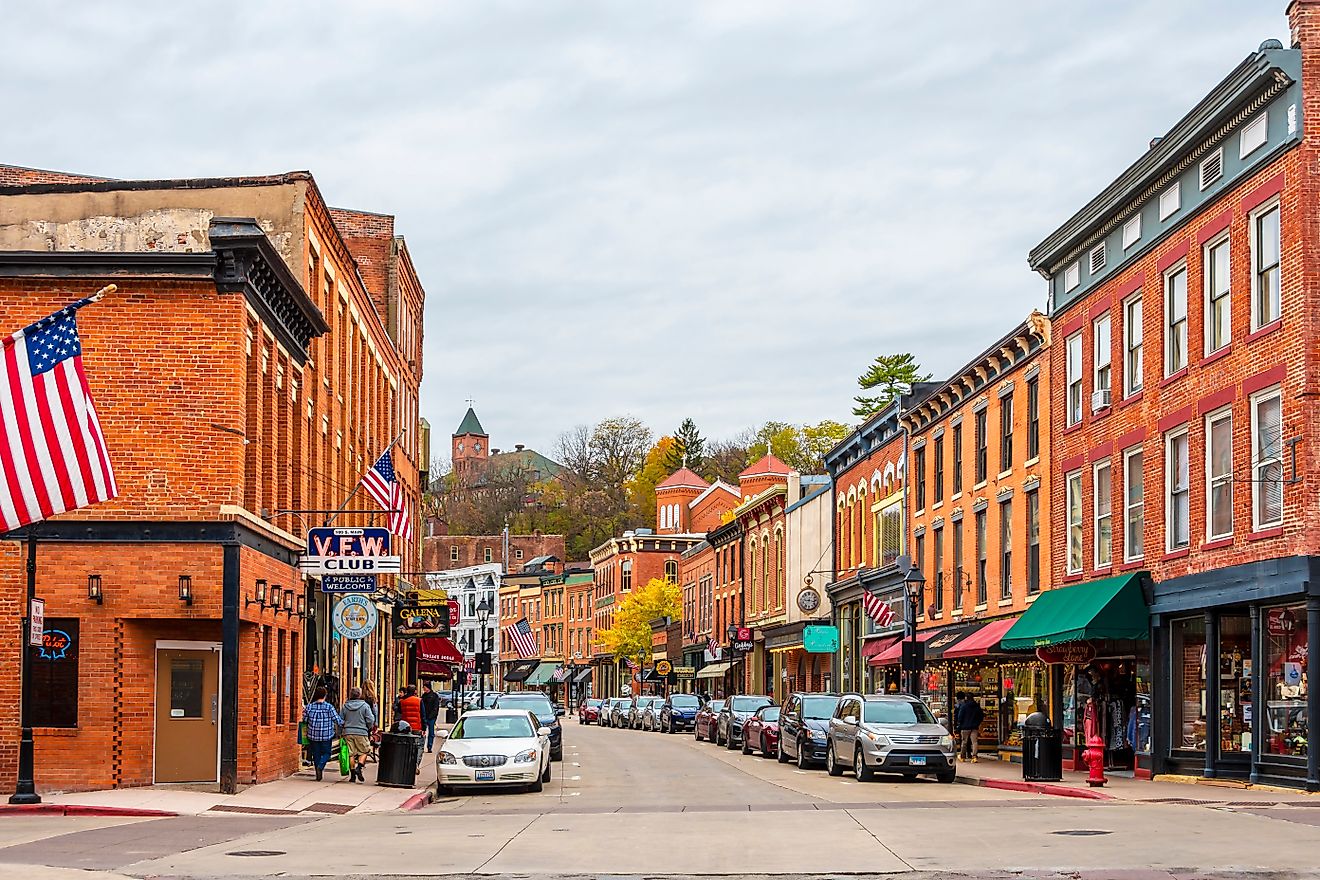
8 Oldest Founded Florida Towns to Visit in 2024
From pirates looking for treasures to explorers setting out to discover the new world, Florida has a storied past leading up to becoming the 27th state in the United States. Before its statehood, the territory was under British and Spanish control and sought after for gold, silver, and fertile agricultural land. With its decorated past, Florida holds some of the oldest towns in the country. Shade tobacco and the cotton industry helped establish some communities, while others experienced a boom from their resort town reputation. The history of Florida, nicknamed the Sunshine State, is truly captivating. Discover the 8 oldest-founded small towns to visit in Florida.
St. Augustine
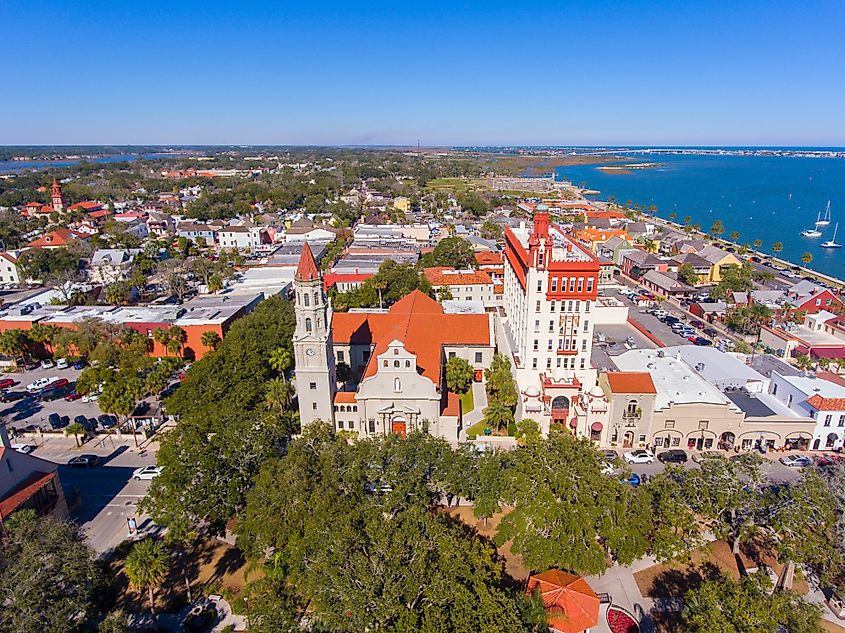
Located in northeast Florida, St Augustine is claimed to be the oldest town in the country. The community was founded in 1565 by Spanish explorers and acquired by the United States in 1821. The community is known for its Spanish colonial architecture in places such as Castillo de San Marcos National Monument, which holds a 17th-century Spanish stone fortress. It's the oldest masonry fort in the country and was built to guard Spain's claim to the New World before the U.S. purchased it.
St. Augustine is dedicated to preserving historic touches around every corner. Visitors can stroll down Aviles Street, a darling brick-covered road claimed to be the oldest street in the nation. Or they can take a step back in time at the Oldest Wooden Schoolhouse, which sets the stage for what school was like in the late 1700s.
Another point of interest is the Fountain of Youth National Archeological Park, home to a mythical spring that early tales say restores the youth of anyone who drinks from it. Explorers like Juan Ponce De Leon set out on a quest in the early 1500s to find it.
Key West
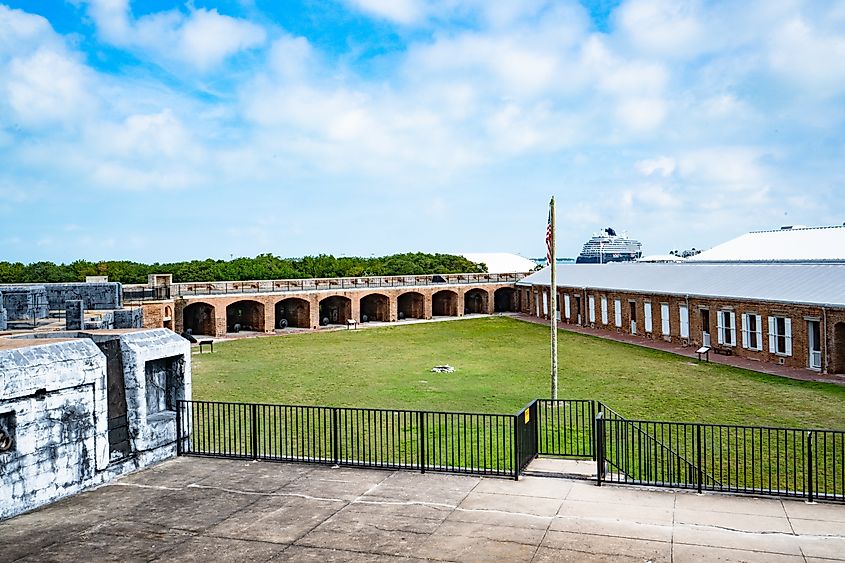
At 4 miles long and 2 miles wide, the coral island of Key West is the southernmost point in the United States. Though the United States founded it in 1822, the tiny town had been visited by treasure hunters well before then. Fishing, salvaging wrecked ships, and cigar manufacturing became the driving economic forces here. Visitors can learn about the early days at Fort Zachary Taylor Historic State Park, where the Navy established a depot to rid the area of pirates.
Key West has long been considered paradise, a reason presidents and early writers chose to have homes here. Ernest Hemingway wrote 70 percent of his books on the island. Visitors can tour the Hemingway Home, see how the writer lived, and search the grounds for his six-toed cats. Hemingway's first cat, Snow White, was a polydactyl, and dozens of descendants still wander around the property.
Another notable place is the Truman Little White House, which served as Harry Truman's Winter White House, where he spent 175 days during his presidency. Lastly, one of the most iconic landmarks and most photographed in Key West is the Southernmost Point. The painted buoy represents the southernmost point in the United States, and its location is 90 miles from Cuba.
Fernandina Beach
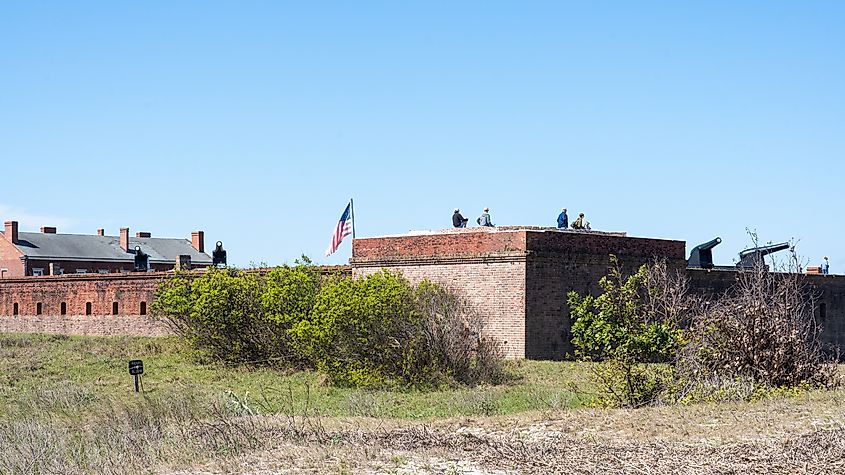
Established in 1825, Fernandina Beach is a historic Victorian seaside town on Amelia Island. The community is known for its shrimping era and is referred to as the birthplace of the shrimping industry. The Isle of Eight Flags Shrimp Festival takes place every May to celebrate the heritage. Another place that pays tribute to maritime history is the Amelia Island Lighthouse, Florida's oldest lighthouse. The beacon of light is perched on a bluff overlooking Egans Creek and guided shrimping and fishing boats.
Other notable stops to explore the town's history include the Palace Saloon, the oldest continually operated bar in Florida, and the Florida House Inn, the oldest hotel in the state. And for those who enjoy wartime history, Fort Clinch State Park holds one of the best-preserved 19th-century forts in the country.
Apalachicola
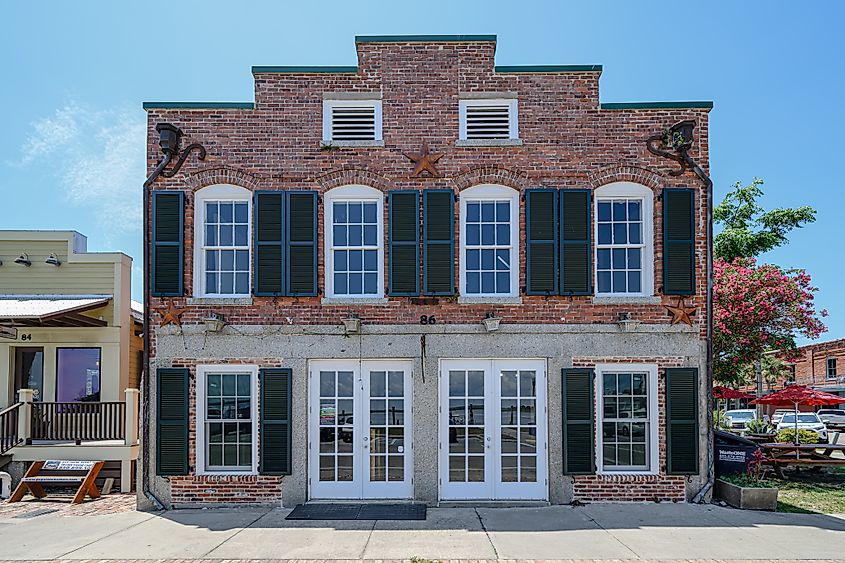
Located along the Florida Panhandle, Apalachicola is one of Florida's oldest port towns. Founded in 1827, the community was initially incorporated as West Point before being named Apalachicola. It has over 900 historic homes and buildings, including a cotton warehouse that played a role in cotton exports during the 1800s. The cotton shipping trade was one of the biggest industries in Apalachicola, and business tycoon Thomas Orman was fundamental in making it thrive. Visitors can learn about this era at the Orman House Historic State Park and tour Orman's antebellum home that overlooks the Apalachicola River.
Nowadays, the town is mainly known for its seafood industry. At one point, Apalachicola Bay produced 90 percent of Florida's oysters. You can book a boat cruise to learn about the maritime heritage or take a sailing sunset expedition to the barrier islands. Captain Gill's River Cruises is a well-known guide service in the area.
Micanopy
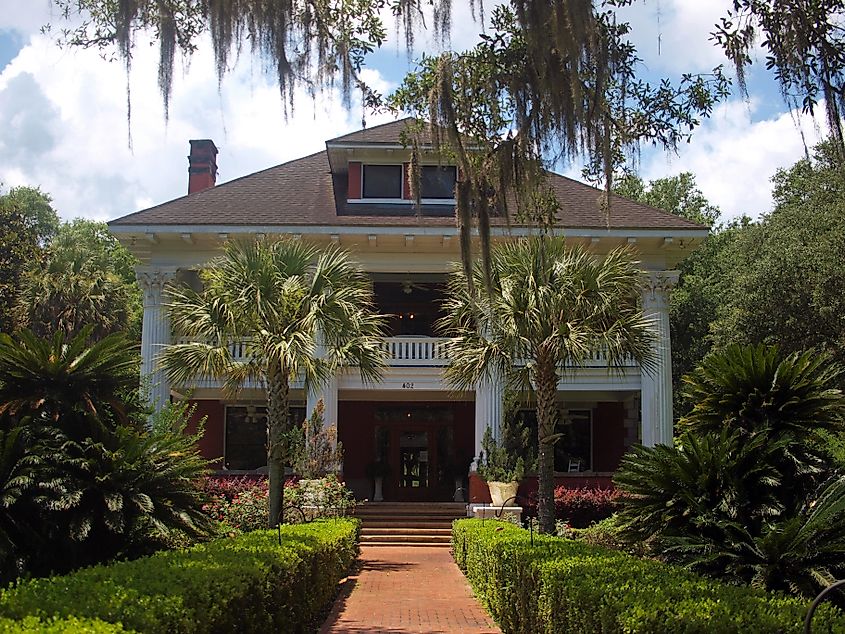
Founded in 1837, Micanopy is known for its excellent antique stores with collectibles from all over the world. The Micanopy Trading Post has plenty of vintage treasures, and many other great shops are within the Micanopy Historic District. There, you will find well-preserved buildings constructed before the turn of the century listed on the National Register of Historic Places. The space also has archeological significance and is believed to be the former site of a Seminole Indian village.
Visitors can learn about the rich Native American history at the Micanopy Historical Society Museum. The exhibits illustrate several Seminole war chiefs. In fact, the town was named after Seminole Chief Micanopy.
Another point of interest about 10 miles outside town is the Marjorie Kinnan Rawlings Historic State Park, the 1930s farm homestead of the author of "The Yearling." Visitors can tour the farm and historic home and learn about the agricultural roots in north-central Florida.
Quincy
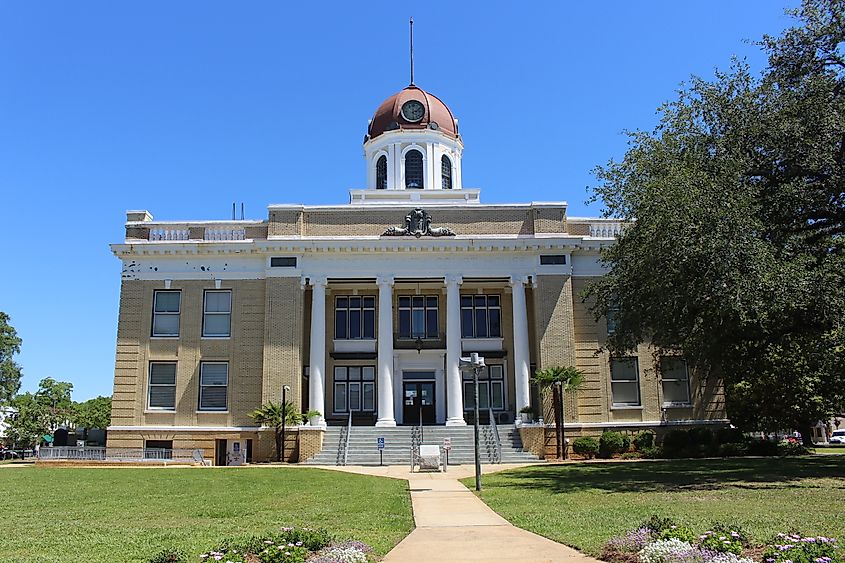
Quincy is a historic town about 20 miles north of Tallahassee that still resembles Old Florida. Founded in 1828, the agricultural town grew around the shade tobacco industry. It also gained the unofficial "Coca-Cola town" title after several locals invested in the company and became millionaires.
Now, the town has transformed into a vibrant arts and cultural scene centered around the 36-block historic district. Quincy is home to Gadsden Arts Center and Museum, which has become a leader in Florida's art community. It's located in the Bell and Bates building, which used to be the county's oldest locally owned hardware store. Theatre is also quite popular here. Quincy Music Theatre is North Florida's largest all-musical community theatre.
To experience Quincy at its finest, several historic buildings have been transformed into inns and bed and breakfast spots, such as the Millhouse Inn and the McFarlin House Bed and Breakfast, a Queen-Ann-style home built in the late 1800s.
Mount Dora
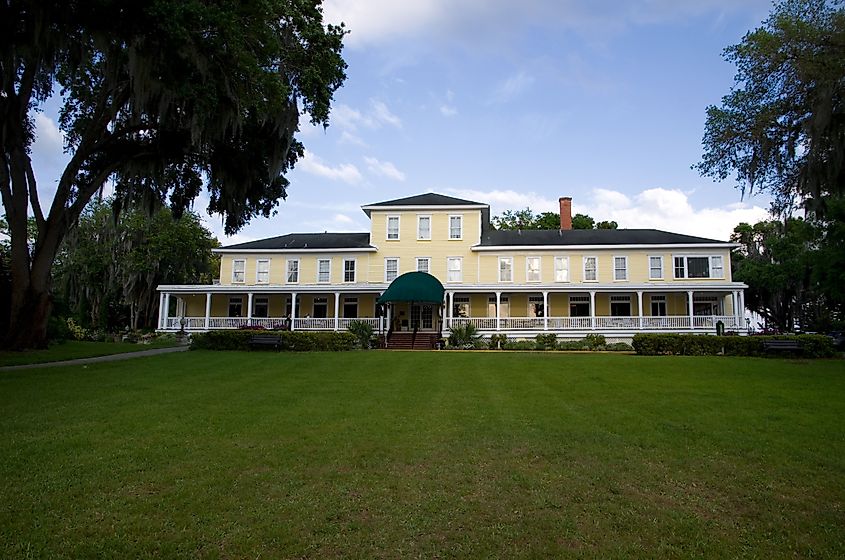
Founded around 1880, Mount Dora is nestled among hillsides and orange groves. The railroad fueled growth and started bringing tourists to this beautiful lakefront community. For example, the Lakeside Inn has been a retreat for hundreds of years and has entertained people like Thomas Edison, Henry Ford, and Dwight D. Eisenhower. 90 guestrooms among the four historic buildings sit along Lake Dora. It still operates as a resort and is a delightful place to stay.
Another point of interest is Old Joe, a 15-foot bronze alligator statue near the Palm Island Boardwalk. This statue commemorates the enormous alligator in the lake at the turn of the 20th century, a significant highlight on boat tours.
Mount Dora History Museum highlights the town's development with interesting exhibits that go over when the railroad came to town in 1915. Visitors can also explore the historic Mount Dora Train Depot, which has been transformed into an event space.
Fort Pierce
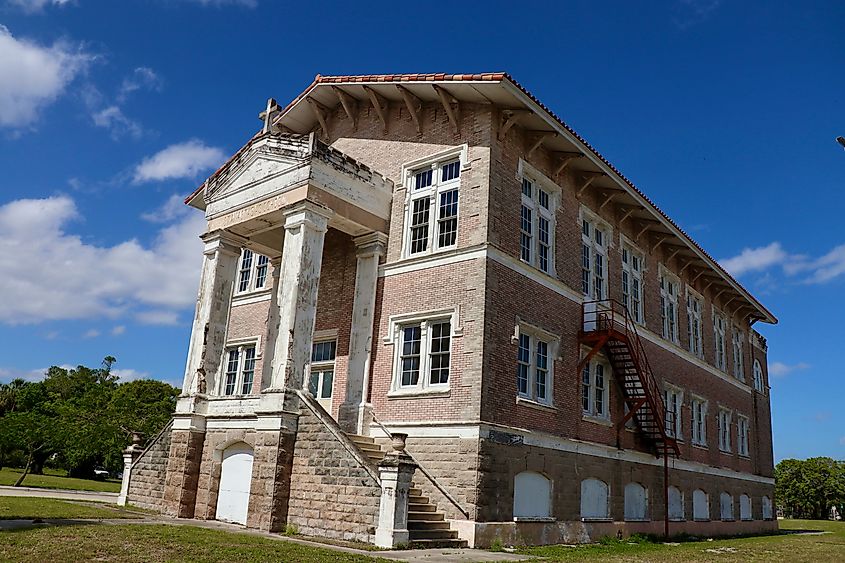
Fort Pierce is one of the oldest towns founded on the state's eastern shore, and it's known for its art culture. The Highwaymen Heritage Trail highlights 26 African American landscape artists who got their start in Fort Pierce. In the 60s, young artists sold gorgeous landscape paintings of Old Florida from the trunk of their cars on Highway 1 because Jim Crow prevented the painters from showing their work in art galleries. The trail has ten stops and tells a story about the significance of each place and artist.
The maritime history is evident from the military presence to marine life conservation efforts. Fort Pierce is home to the National Navy SEAL Museum, the only museum that focuses solely on preserving the history of the Navy Seals. Another interesting site is the Manatee Observation and Education Center, where you can observe the hundreds of manatees that migrate here in the winter. Also, manatees can be found in Moore's Creek all year long.
The little towns in Florida have a decorated past and have managed to preserve their history for visitors to enjoy. Whether you walk the streets of St Augustine and marvel at the architecture or set out to explore the southernmost point in Key West, Florida’s history is anything but boring. The shrimp and oyster industry comprise part of the rich maritime history, while the cotton shipping trade and the shade tobacco industry made towns prosperous. The historic touches give all the more reasons to visit the Sunshine State.
